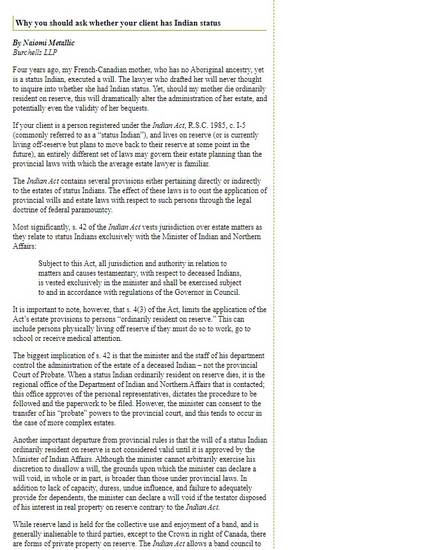
Four years ago, my French-Canadian mother, who has no Aboriginal ancestry, yet is a status Indian, executed a will. The lawyer who drafted her will never thought to inquire into whether she had Indian status. Yet, should my mother die ordinarily resident on reserve, this will dramatically alter the administration of her estate, and potentially even the validity of her bequests.
If your client is a person registered under the Indian Act, R.S.C. 1985, c. I-5 (commonly referred to as a “status Indian”), and lives on reserve (or is currently living off-reserve but plans to move back to their reserve at some point in the future), an entirely different set of laws may govern their estate planning than the provincial laws with which the average estate lawyer is familiar.
